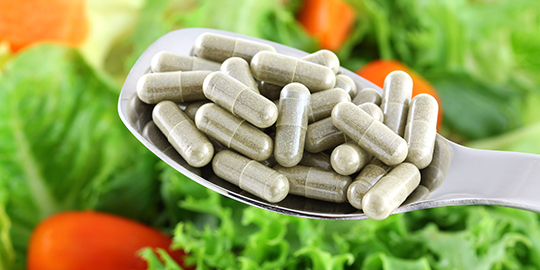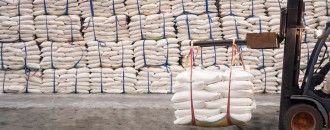
'Indian nutraceutical industry yet to explore export avenues'
Sai Nikesh | The Dollar Business
Global nutraceutical market is expected to cross $262.9 billion by 2020 from the current level of $182.6 billion, growing by 8% annually, a study be Associated Chamber of Commerce and Industry (ASSOCHAM) has claimed. Changing lifestyle and rising health awareness is expected to boost Indian market too and the country’s nutraceutical market is likely to cross $6.1 billion by 2020 from the current level of $2.8 billion growing at the compound annual growth rate of about 17%, said the study titled ‘Indian Nutraceuticals, Herbals, and Functional Foods Industry: Emerging on Global Map’. Experts feel that even though there is a huge development scope, few challenges are hindering growth of the Indian Nutraceutical Industry. “India is having untapped and immense growth possibility in domestic sector and exports in nutraceuticals. However, the challenges are certifications of good manufacturing practice not available to food /nutraceuticals,” Vishal Rajgarhia, Director, Finecure Pharmaceuticals Ltd and Chairman, ASSOCHAM Gujarat Pharma Council, told The Dollar Business. For exports, free sale certificate is required and the existing norms meant for the issue of such certificates do not cover nutraceuticals, he added. Rajgarhia also said that the consumption of Indian public and awareness on nutraceuticals is increasing, which in turn is increasing domestic market incredibly year-on-year. Major nutraceuticals/ vitamins and supplements are sold in India as pharmacopoeial drugs.Looking at the potential of nutraceuticals Industry, a separate Nutraceuticals Act promoting industry is need of the hour, he said. Vivek Srivastav, Chief Scientific Officer (CSO) and R&D Head, Zeon Lifesciences Limited, also agreed that the industry has larger scope of growth on par with pharmaceutical industry. “But the real challenges are due to lack of proper regulatory standards and clarity on definition of products and ingredients,” he said. According to Srivastav, 'any ingredient (botanical, vitamin, minerals, amino acids, micro nutrients and some of animal products), which has got some physiological benefits may/may not alter physiological state of human body, is a Nutraceuticals ingredient and if altering the state, that should be validated from clinical aspects.' However, nutraceuticals are being seen as different from other natural products, he pointed out. “In this regard, it would be encouraging if the government/regulatory authority can take measures like providing subsidies to the industry, bringing in collaboration between Ministry of AYUSH (Ayurveda, Yoga and Naturopathy, Unani, Siddha and Homoeopathy) and Nutraceuticals industry, in order to fill the existing gap between natural and nutraceuticals products,” he said. Rating the current status of the industry as ‘moderate’, Srivastav said that most of the ingredients requirement is being met through imports, even though Indian products have got good demand overseas. Looking at the sector-wise growth under the industry, some of the sectors under nutraceuticals witnessing growth include functional food, medical nutrition and sports nutrition. There is a lot of scope for innovation in this industry. However, that should be based on rationale and scientific study, which should be in proportion with the economic viability and affordability, Srivastav added. According to ASSOCHAM study, at present, India does not have any kind of regulatory guidelines for the approval or monitoring of the products under this segment. These products are regulated under the guidelines of FSSA, 2006 amended in 2011 for registration, licensing, approval, labeling & packaging, import, marketing & distribution and laboratory testing like conventional food products. The ASSOCHAM has also urged that the Food Safety and Standards Authority of India (FSSAI) should come up with properly framed guidelines related to manufacturing, storage, packaging & labeling, distribution, sales, claims and imports in order to bring clarity to the industry stakeholders and enable them to invest with no fear of counterfeiting. United States has the largest market for nutraceuticals, followed by Asia-Pacific and European Union, with functional food as the fastest growing segment.Germany, France, UK and Italy are the major markets in the EU. In Asia-Pacific region, Japan (14%) is the major consumer of nutraceuticals followed by China (10%) and Indian nutraceuticals market is at a nascent stage but fast emerging, accounting for around 1.5% of the global market.
August 18, 2015 | 4:56pm IST






 to success.
to success.